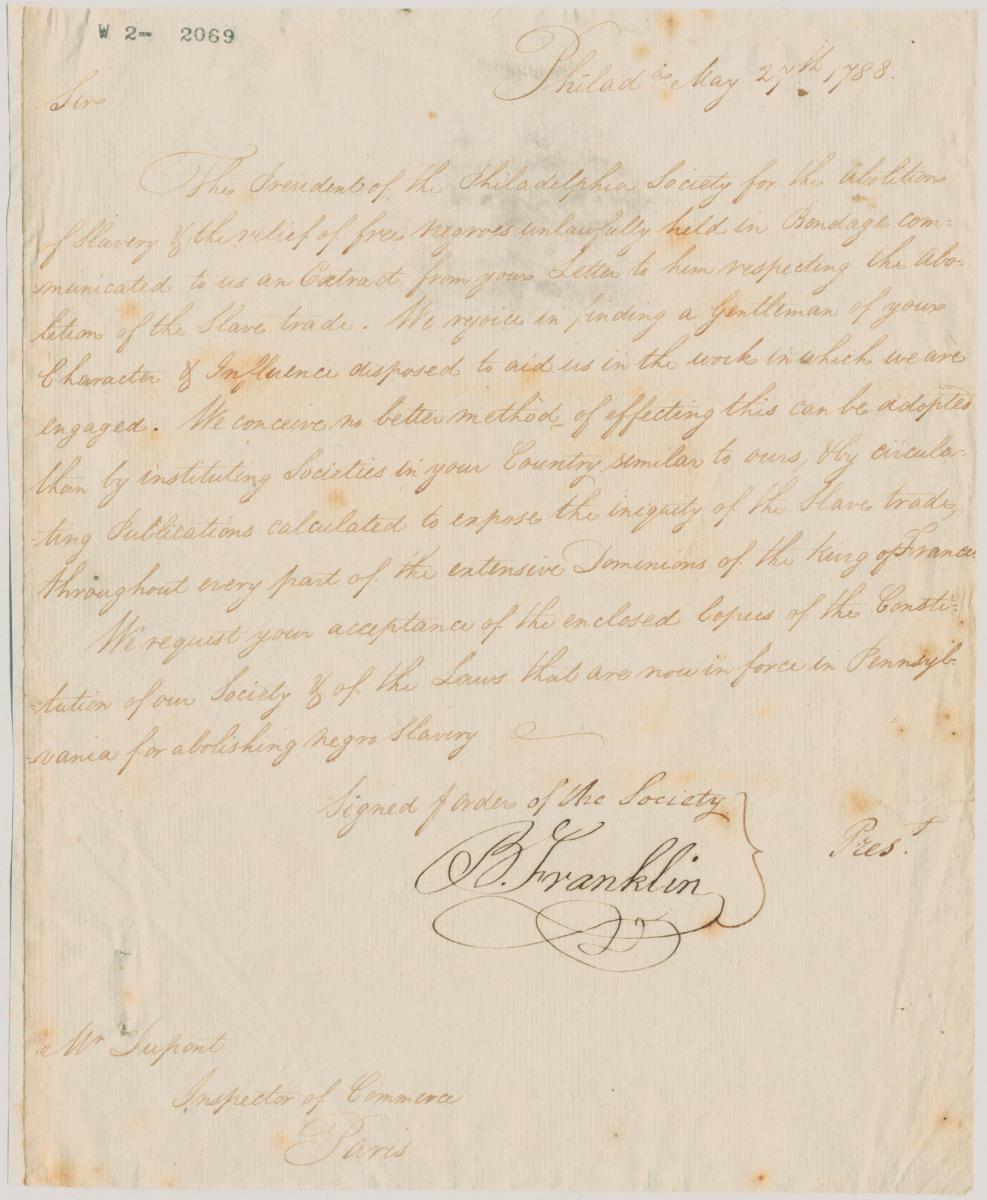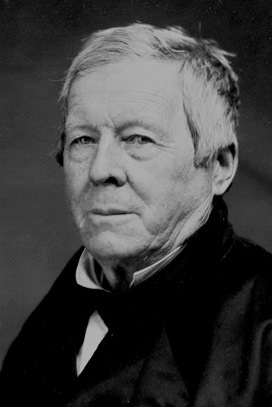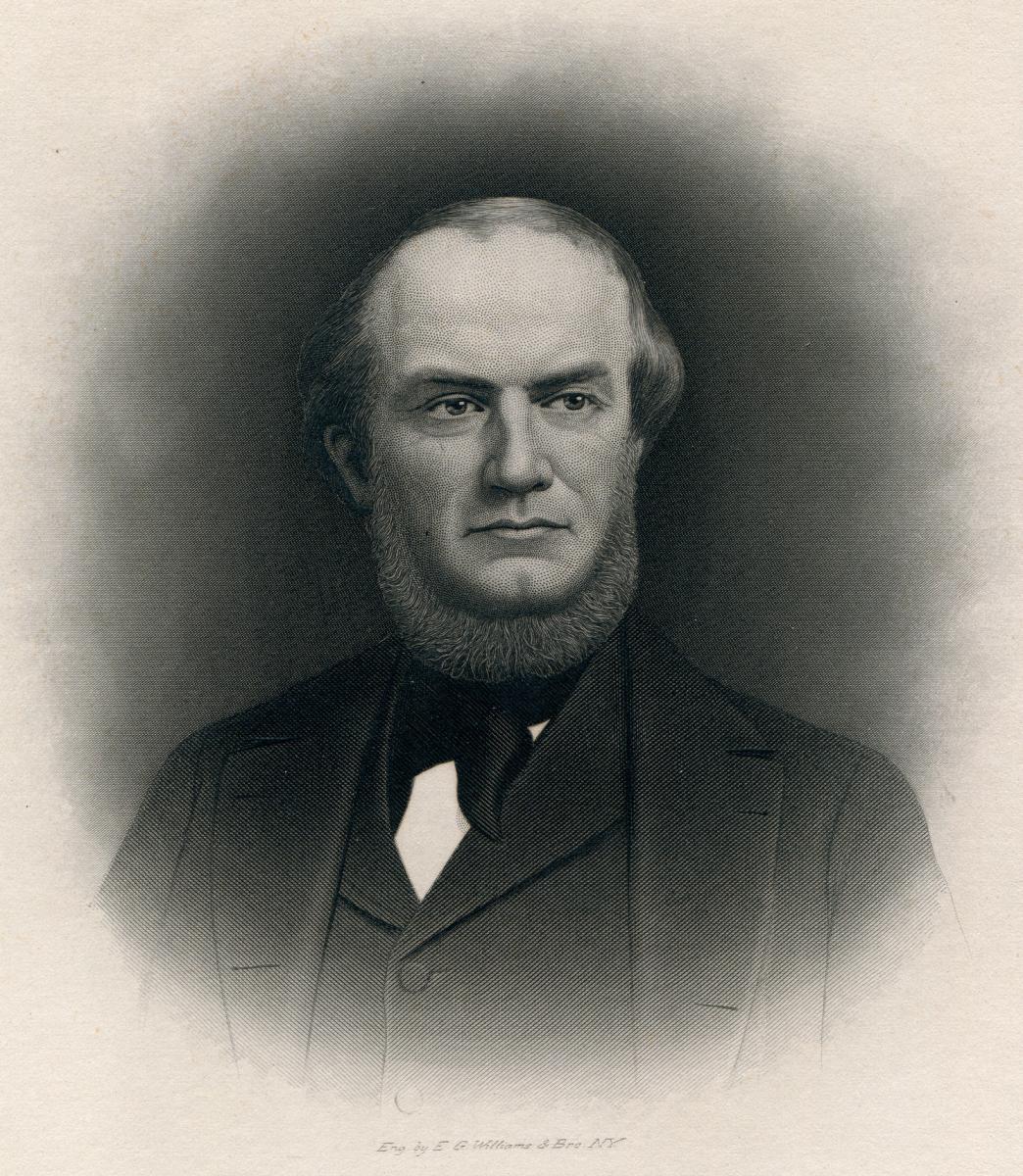Question: What were the du Pont family’s views on slavery?
Answer: Pierre Samuel du Pont de Nemours (1739-1817), father of DuPont Company founder E.I. du Pont, held a hard line against slavery. He and many of his colleagues in the French Physiocratic movement argued that slavery was morally and economically unsound. Their view held that slave labor undermined free labor and worker morale, went against natural law and religious teachings, was far more expensive than proponents would admit and was an overall detriment to any country’s economy. Benjamin Franklin and his anti-slavery writings had a strong influence on Physiocratic thinking. P.S. du Pont de Nemours even corresponded with Franklin and supported the Philadelphia Society for the Abolition of Slavery. Du Pont de Nemours wrote against slavery up to his death in 1817.

It is interesting to note that Françoise Robin Poivre du Pont (1748-1841), second wife of P.S. du Pont de Nemours, made an agreement with Paul Mersereau of Staten Island, New York in June, 1800 to take custody of two enslaved women, Jeen and her infant daughter Lydia. One of the agreement’s conditions was that Jeen and Lydia be manumitted within 14 years. Françoise Robin du Pont asked her stepson E.I. du Pont to take care of the women in 1802 but there is no evidence he or any other du Pont family member did so or that Jeen and Lydia came to the Brandywine. We do not know what ultimately happened to the mother and daughter or the circumstances behind Françoise Robin du Pont’s agreement. The indenture with Mersereau and a note from 1802 are the only documents in Hagley’s collections that refer to Jeen and Lydia.
The du Pont family in Delaware carried on P.S. du Pont de Nemours’s anti-slavery views. They felt that slavery was a moral and economic evil that had to be abided no matter how much they disliked it since it was protected under the U.S. Constitution. Du Pont family members never joined the abolitionist movement but did quietly help anti-slavery advocates in Delaware. Alfred Victor du Pont (1798-1856) gave financial assistance to Thomas Garrett (1789-1871) in the late 1840s after Garrett lost a major court battle for helping escaped slaves on the Underground Railroad.

On the eve of the American Civil War, the du Pont family thought the abolition of slavery should come through legislation rather than warfare. This opinion changed in the war’s early months when Commodore Samuel Francis Du Pont (1803-1865), then commanding the U.S. Navy’s South Atlantic Blockading Squadron, saw slavery firsthand in South Carolina, Georgia, and Florida. He wrote home about the terrible living conditions enslaved people endured, heard stories of abuse and torture by masters and overseers, and witnessed evidence of slaveowners executing slaves rather than see them escape or be freed by the U.S. Navy or Army. All of this mortified Samuel Francis Du Pont, writing to his friend William Whetten that “I have seen nothing that has disgusted me more than the wretched physical wants of these people.” His personal views shifted to outright abolitionism as he continued writing home about the horrors of slavery.
Henry du Pont (1812-1889), DuPont Company President from 1850 to 1889, adamantly opposed slavery and slaveholders. He felt the institution and its defenders stifled the economy, corrupted government, and caused moral decay. When the Civil War began, Henry du Pont based his support for the U.S. Government on keeping the Union intact. As the war progressed (and as he read Samuel Francis Du Pont’s letters) he advocated making abolition a war goal in order to strangle the Confederate economy and eliminate a corrosive force in the United States. Henry du Pont supported anti-slavery efforts through the end of the war and spoke out against former slaveowners and their worldviews for the rest of his life.

Lucas Clawson is the Hagley Historian at Hagley Museum and Library.
